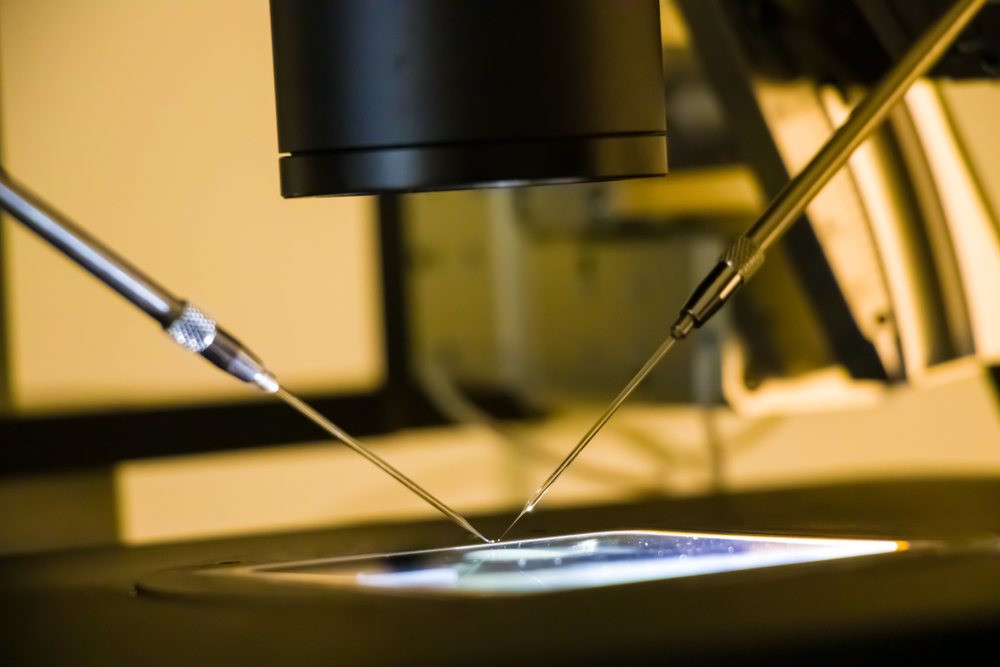If you’re new to the world of fertility treatments, you may be unfamiliar with the different terminology and abbreviations. There’s certainly a lot to wrap your head around, so don’t be afraid to ask your doctor plenty of questions in order to understand your options more clearly. To help, we have put together this guide to highlight the differences between IVF and ICSI treatments and why you might be better using one over the other.
Understanding IVF Treatment
IVF stands for “in-vitro fertilisation” which means “in glass” but, other than during the egg collection operation, no test tubes are actually involved in the process, as is falsely assumed. The treatment comprises of a number of procedures to allow for eggs to be removed from the woman’s ovaries and fertilised with sperm in a laboratory dish. Once the eggs are fertilised, the embryos are carefully incubated for roughly three to five days before the best one or two candidates are then transferred into the womb. Closely controlled conditions and highly skilled embryologists are required in order for this to be a potentially successful procedure.
IVF treatment begins with hormone therapy, designed to stimulate the ovaries to develop more follicles. This cycle will be closely monitored by the doctor to ensure that ovulation is triggered at the right time, but the injections are self-administered. Ovulation is then triggered using a different hormone and then the eggs are collected and fertilised in the laboratory as explained above.
Unfortunately, there is no guarantee that an embryo will implant and become a pregnancy, so surplus embryos are usually frozen so that another transfer can be carried out without the need for repeated hormone therapy.
This treatment can be emotionally and physically taxing, so it’s important that you try and limit stress and remain healthy by eating a balanced diet and avoiding cigarettes and alcohol. You may also want to consider counselling for additional support.
Understanding ICSI Treatment
During a normal IVF procedure, fertilisation occurs spontaneously when the eggs and sperm are mixed. However, this fertilisation will usually not occur if the sperm do not meet any of several measurable parameters. Commonly, if there aren’t enough produced, they are hardly swimming, or perhaps not swimming at all, or too many of them are misshapen. ICSI, or Intra-Cytoplasmic Sperm Injection, was developed to overcome this issue, as it involves microscopic manipulation equipment to manually inject the sperm into the egg.
The eggs and sperm are prepared separately and as they are so tiny, a powerful microscope and micromanipulators, such as microinjectors and micropipettes, are used by the embryologist to inject the sperm into the egg’s inner cytoplasm. Thereafter, the usual IVF treatment pursues as normal. Of course, where possible we prefer to let nature take its course and allow them sperm and eggs to mix naturally, but ICSI is recommended if this is not possible.
How Are IVF and ICSI Similar?
Before any fertility treatment begins, tests are carried out to identify possible causes of infertility. Sometimes, a semen analysis will discover that the sperm is inactive, and the decision to use ICSI will be made based on professional recommendations. IVF and ICSI are similar in that both eggs and sperm are collected from each partner or donor, the eggs are then fertilised either naturally or otherwise, and the embryologist will select the best candidate to transfer into the womb for implantation. The only difference between the two treatments is that the eggs are individually injected with a single sperm during ICSI, rather than naturally penetrating the eggs.
Concept Fertility and our experienced specialists offer a one-stop fertility service for those who are struggling to conceive naturally. Please feel free to book an initial consultation with us if you require our help.

